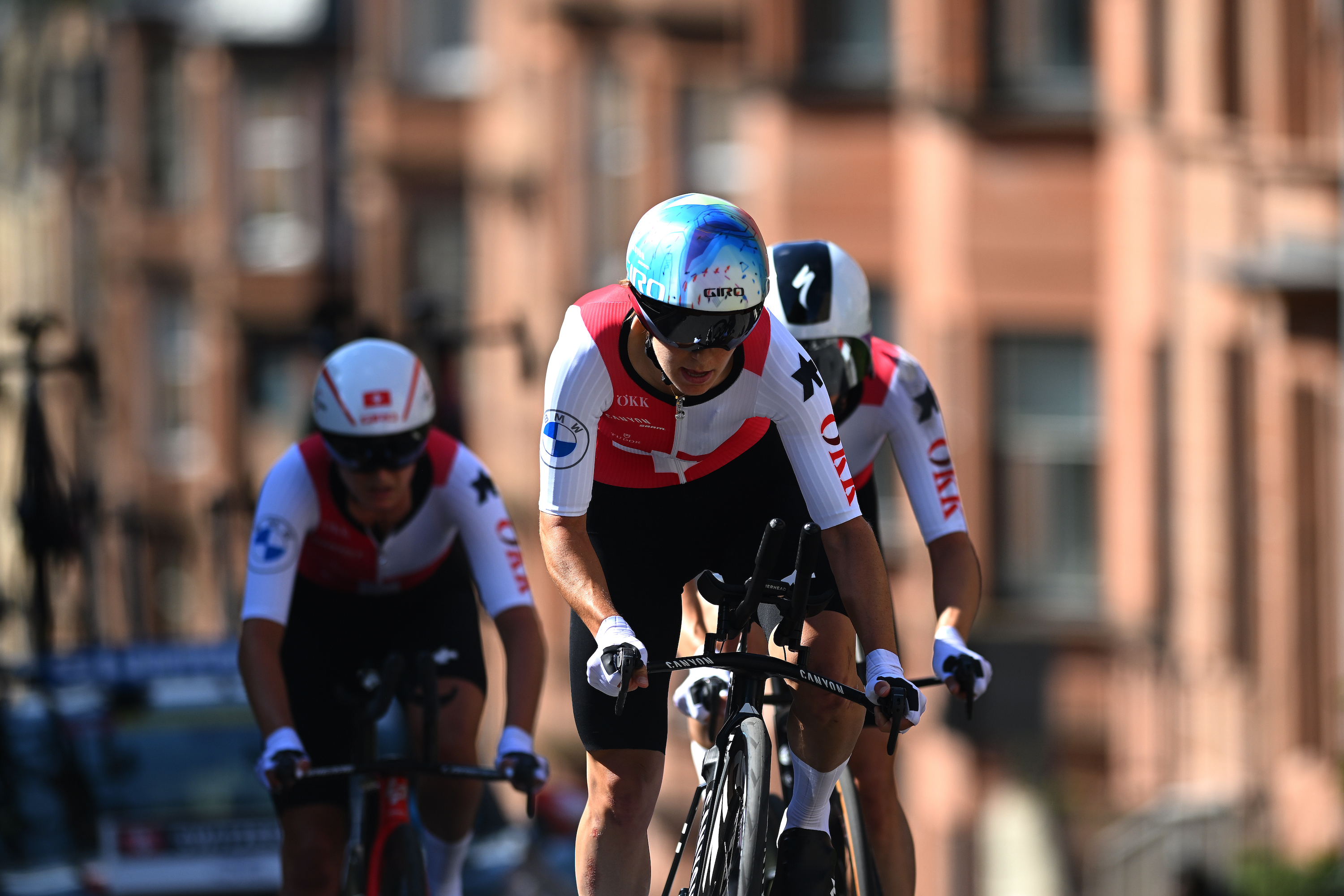
On Wednesday afternoon, the hardest mixed team relay time trial ever at the World Championships takes place in Zürich.
The event having only been introduced in 2019, you might be thinking 'what is the mixed team relay time trial?', 'I haven't watched any of the others to compare', or 'what's the point?', but the event could be one of the most explosive races at the 2024 Worlds. Over 53.6km from Zürich to Zürich, on a loop of the same city course as will be employed in the road races, the teams will need to maintain a tight formation over 894 metres of climbing. It will be fascinating.
"It’s going to be very tough, particularly for some of the less experienced teams," Cycling Weekly's resident TT expert Dr Michael Hutchinson explains. "But that’s part of the sport, it’s the same for everyone. The course they had at Glasgow last year was very difficult too, it wasn’t as hilly, it was very twisty, and we did see some high-profile crashes."
Now in its fifth iteration, the rules are pretty simple. Three male riders per country head out first around a course, setting a time, before three compatriot female riders head out on the same route, before the results are combined in a cumulative time. Time is taken on the second rider over the line, and fastest wins. As per any team time trial, dropping riders can be catastrophic if this means the final rider to be counted is far behind the leader on the line.
Team time trials have largely fallen out of fashion in recent years, despite the best efforts of some race organisers, but the mixed relay TTT was an attempt by cycling's governing body, the UCI, to make the event fun again. The mixed element adds something, and is also a move towards the kinds of mixed events so loved by the IOC at the moment - there are mixed Olympic events in triathlon, swimming, athletics, even archery.
It should be great, but its position mid-week and the apathy of many nations to it - there will be no teams from Great Britain, the Netherlands, or Belgium - mean it flies rather under the radar. Newly decorated time trial world champion, Grace Brown of Australia, will take part, but male winner, Belgium's Remco Evenepoel, will not.
The apathy is unfortunate. Wednesday's course should mean exciting team time-trialling, and there will likely be drama with teams losing contact with each other; crashes are likely. The thrilling route might be more the result of logistics than a desire for the toughest TTT ever, but no matter.
"It's very hilly," Dr Hutch says. "I mean, they're doing it because everything else was point to point so you couldn't use any of the other time trial courses for it. They'd have to close more roads for something like that.
"I’d be amazed if there isn’t [splitting up]. I think there’ll be very few teams that blast up the climbs without splitting up. There are some quite technical bits as well, and a lot of them are on the downhill. It would be an easier circuit the other way round. We’ll certainly see teams breaking up, and with the time taken on the second rider, there will be pretty big decisions about whether you’re waiting for people. It will have to be decided on the road."
As for how it is tackled, with many national teams surely not often training in the art of team trial together, discipline will be important to all 20 squads taking part on the vertiginous course.
"Communication is key, riders in the team being prepared to say I’m kind of suffering a bit here, or you’re going to have to wait for me, particularly if you’ve already lost somebody," Dr Hutch says. "As soon as you’re not in the slipstream, you’re not getting back, so there has to be communication.
"Better teams will have planned for this in some detail - who’s going to lead on the hills? Who’s going to lead on the flat? Who’s making the decisions? Some will have even [virtually] modelled the course because you can do that and work out what is the optimal configuration of the team for each section of the course. Teams will have worked out what wattage level they will have to set on each part. It’s quite hard to make that happen in real life, but you can at least start off with a very clear idea of what you should do."
Switzerland will be hoping for a third victory in a row in the nascent format, and Wednesday's race should be a must-watch, but the future of the event still hangs in the balance. With other mixed events working, even in cycling in the cyclocross mixed relay, there is an opportunity there, but perhaps it needs to become an Olympic event to really matter, and that seems far off.
"I really like it, but I’m not sure where it’s going," Dr Hutch adds. "The idea was that it was going to go into the Olympics, and it hasn’t. And I don’t see it happening, unless they relax the athlete number rules.
"I’d love to see it maturing into a proper event," he concludes.







